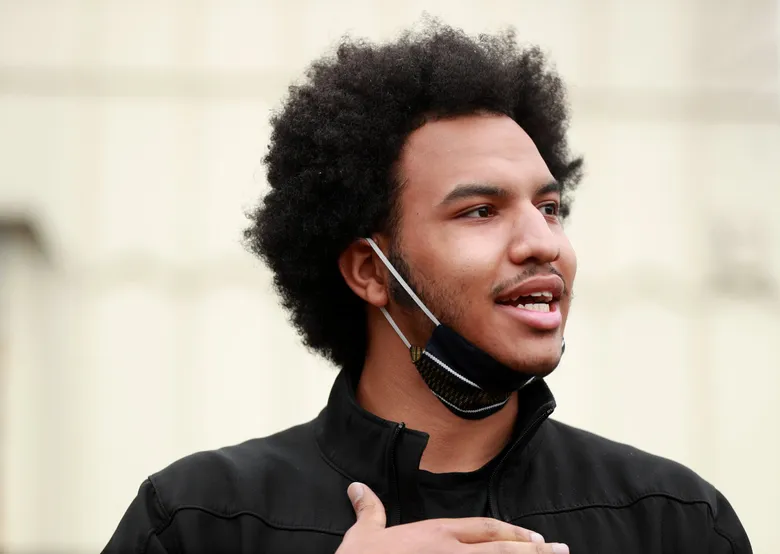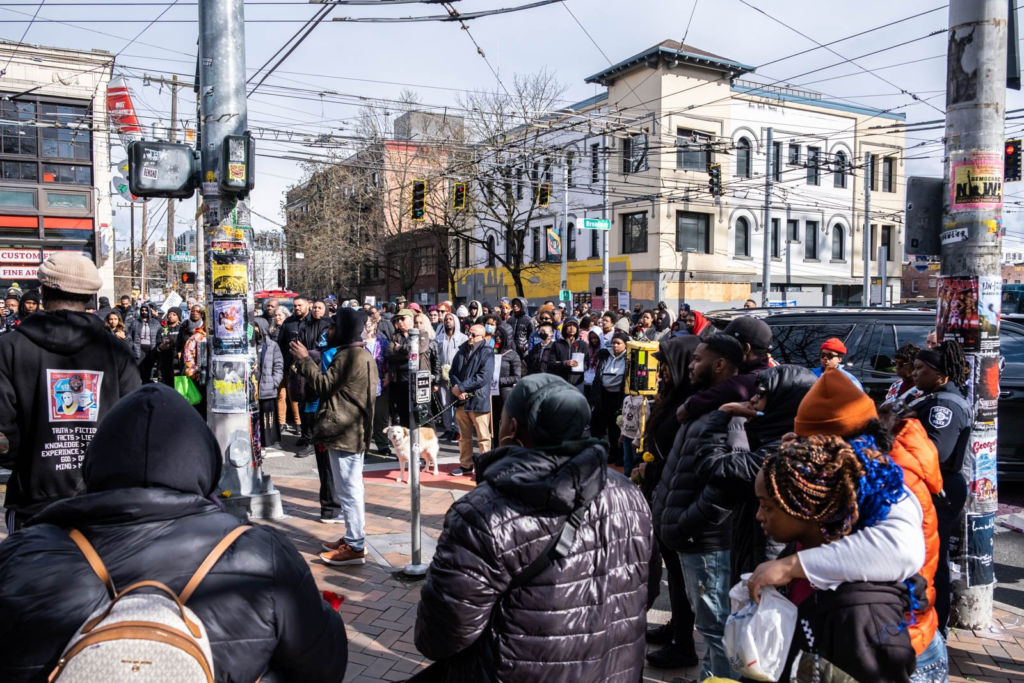In a deeply tragic incident that has rocked both the fashion and activist communities, a former Project Runway contestant was shot and killed during a protest in Salt Lake City, Utah. The victim, identified as 37-year-old Elijah Lewis, was known for his bold fashion designs, outspoken views on social justice, and vibrant presence in the industry.
Elijah was reportedly participating in a peaceful demonstration advocating for indigenous rights and climate justice on Saturday evening when gunfire erupted unexpectedly. Police confirmed that the shooter, a 42-year-old male whose identity is being withheld pending investigation, was taken into custody.
According to eyewitnesses, the altercation began with a verbal dispute before quickly turning violent. The motive for the shooting is still under investigation.
Remembering Elijah Lewis
Elijah rose to national fame after appearing in Season 13 of Project Runway, where his creativity and unique blend of streetwear and cultural storytelling won over fans and judges alike. Though he didn’t win the season, Elijah remained a respected figure in the fashion world. He later launched his own label, which focused on sustainable and ethically sourced materials and often highlighted themes of race, identity, and resistance.

“He wasn’t just a designer,” said fellow Project Runway alum Candace Thompson in an Instagram post. “Elijah was a movement. He used his voice, his needle, and his presence to challenge everything—from consumerism to colonialism.”
Lewis also mentored aspiring designers from marginalized communities and held regular fashion workshops in underserved neighborhoods.
Fashion and Activism: A Powerful Intersection
Elijah’s tragic death has reignited conversations around fashion activism, an evolving space where designers, models, and influencers use their platforms to speak on political and social issues.
Fashion has long been used as a tool for protest. From the black berets of the Black Panthers to slogan T-shirts bearing messages like “We Should All Be Feminists,” clothing is often both a form of self-expression and a political statement. Elijah’s work was part of this lineage—he once said in a 2021 interview, “My runway is the street, my models are the people, and my mission is justice.”
Experts say his killing is a stark reminder of the risks faced by those who engage in activism, even through creative channels.
“Fashion is not just about style anymore; it’s about substance,” said Dr. Angela Hayes, a cultural critic and professor of media studies. “Elijah was part of a generation that believes you can make a political statement with a stitch, a silhouette, or a slogan.”
Read more about the rise of fashion activism and its impact on modern design.
Community in Mourning
The response to Elijah’s death has been swift and emotional. Vigils were held in cities like Los Angeles, New York, and Chicago. Hundreds gathered in Salt Lake City wearing garments inspired by Elijah’s designs—vibrant colors, cultural patterns, and protest motifs.
Social media also flooded with tributes, including from prominent figures in fashion and entertainment. Model and activist Adwoa Aboah tweeted, “Elijah Lewis stood for more than style—he stood for survival, justice, and future generations.”
Many within the fashion industry are calling for action, including stronger protections for public demonstrators and more support for creatives working on the frontlines of social movements.
A Call for Justice
Local authorities have confirmed that an investigation is underway, and federal agencies have also been briefed on the case. The Lewis family has urged the public to remain peaceful but firm in demanding justice.

“Elijah believed in change through creation, not destruction,” said his sister, Ava Lewis, during a press conference. “He would not want anger to burn the bridges he tried to build.”
The protest where Elijah was killed was part of a broader campaign demanding that Utah lawmakers halt construction on a controversial oil pipeline running through sacred Native American land.
To understand the background of the protest, read this article on indigenous land rights and climate justice in Utah.
A Legacy That Lives On
Though Elijah Lewis is gone, his legacy lives on in the art he created, the people he inspired, and the movements he supported. Many are calling for an annual “Elijah Lewis Day” to be recognized nationally as a moment to reflect on the role of art in activism.
Fashion institutions are also planning tributes, including a retrospective of Elijah’s work at the Fashion Institute of Technology and a scholarship fund for BIPOC fashion students announced by Parsons School of Design.
“Elijah showed us that a dress could be a flag, a hoodie could be armor, and a runway could be a rally,” said longtime collaborator Marco DeLuca. “He made us believe fashion could change the world.”
For more on how designers are shaping global conversations, visit this report on sustainable activism through fashion.
Final Thoughts
The death of Elijah Lewis is a heartbreaking loss—not just for the fashion world, but for anyone who believes in the power of creativity to drive change. His work will continue to inspire, provoke, and challenge long after the lights dim on the runway.
As the investigation unfolds and justice is pursued, Elijah’s story reminds us all that style and substance can—and should—go hand in hand.
Also Read – City Life Changing: NYC Launches Major Quality Crackdown






